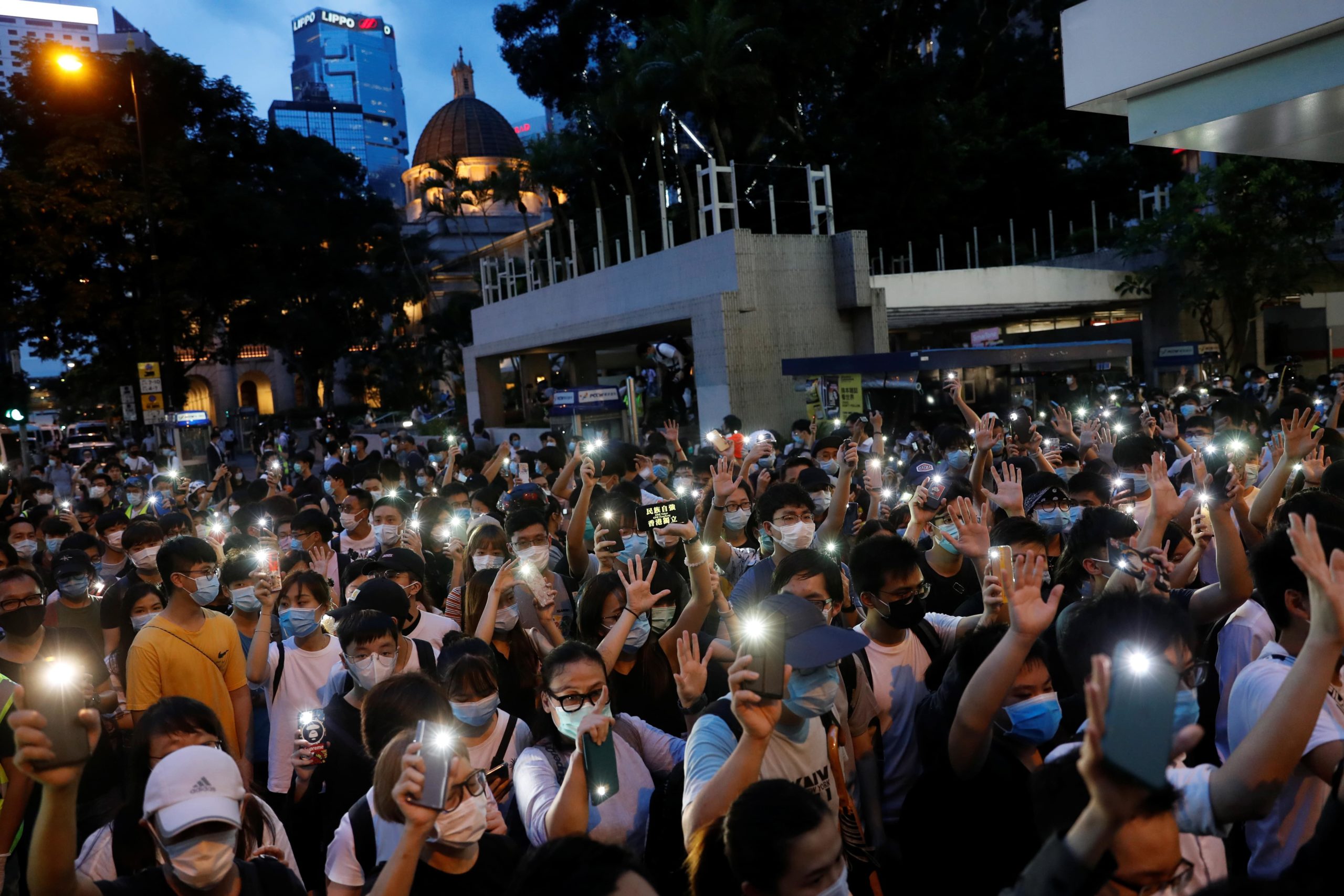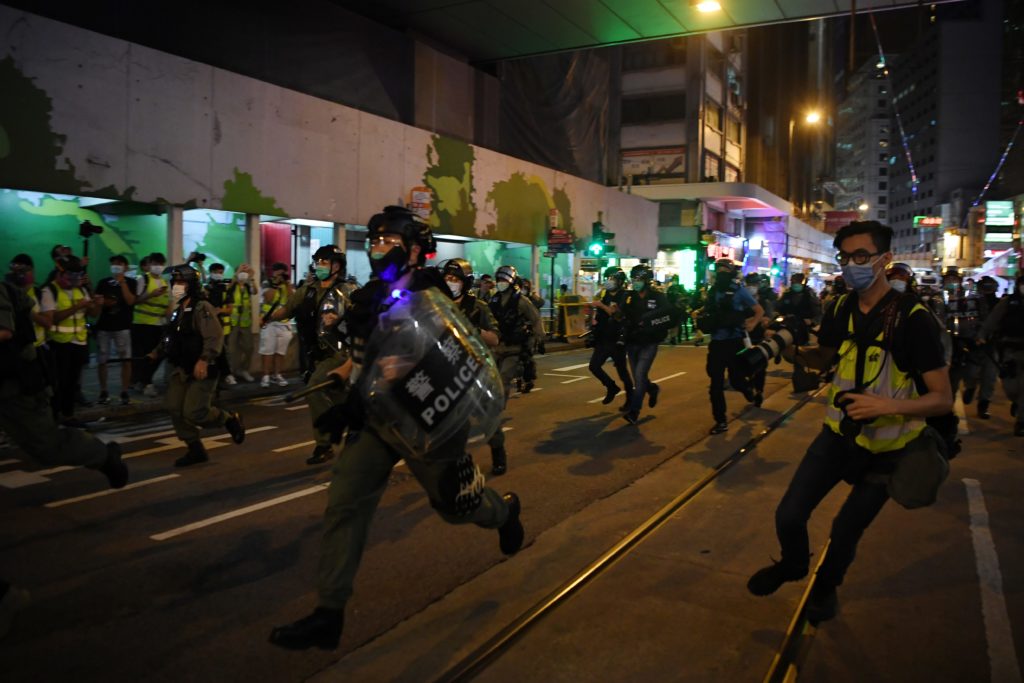Hong Kong government rejects UK criticism of new security law as biased
 Pro-democracy demonstrators march holding their phones with flashlights on during a protest to mark the first anniversary of a mass rally against the now-withdrawn extradition bill, in Hong Kong, China June 9, 2020. (Photo: Reuters)
Pro-democracy demonstrators march holding their phones with flashlights on during a protest to mark the first anniversary of a mass rally against the now-withdrawn extradition bill, in Hong Kong, China June 9, 2020. (Photo: Reuters) HONG KONG – The Hong Kong government has hit back at a report by Britain criticising Beijing’s move to impose national security legislation on the global financial hub, saying the report was “inaccurate and biased”.
The British government said the proposed legislation was a clear violation of China’s international obligations and a breach of the “one country, two systems” formula that has governed the former British colony since its handover to Chinese rule in 1997.
British Foreign Minister Dominic Raab said a solution to the year-long unrest in Hong Kong, which has been marked by sometimes violent clashes between protesters and police, must come from within the city, not from Beijing.
Hong Kong’s government said it firmly opposed the “inaccurate and biased remarks on the national security law and the high degree of autonomy (in Hong Kong).”
Local and Beijing authorities have insisted the legislation will focus on small numbers of “troublemakers” who pose a threat to national security and will not curb freedoms or hurt investors.
“Any allegation that the law will undermine Hong Kong people’s freedoms and ‘one country, two systems’ is no more than alarmist speculation and simply fallacious,” the Hong Kong government’s statement said.
Legislating on national security was within the purview of Beijing, it added, and the law would help better protect the rights of Hong Kong people while restoring stability.
The exchange over the legislation, which is expected to be implemented by September, came as Hong Kong marked the anniversary of a major protest that saw a turning point in the city’s pro-democracy movement.

Police officers charge at demonstrators during a protest on the first anniversary of a mass protest against the now-withdrawn extradition bill, in Hong Kong’s Central district, China June 9, 2020. (Photo: Reuters)
On June 12 last year, police fired tear gas and rubber bullets as protesters rallied in the heart of the business district against a proposed bill that would have allowed extraditions to mainland China.
It was the first such response from police, who have argued the use of “minimum” force was necessary to restore law and order, a move that radicalised many moderates in Hong Kong.
While the bill was later withdrawn, the protest movement evolved into broader appeals for democracy amid fears Beijing was tightening its grip on the city.
STUDENT PROTESTERS
Rallies marking the pivotal moments of the protest a year ago are planned for later on today, while a student group and several trade unions will vote on the weekend on a proposal to hold a wide-scale strike.
China’s Hong Kong Liaison Office, which serves as a platform for Beijing to project its influence in the city, said schools should “immediately discourage” such activity. It blamed political groups “with ulterior motives” for “shocking chaos in Hong Kong education.”
Students have played a major role in demonstrations over the past year, culminating in the occupation of a university campus which led to a weeks-long standoff with the police in some of the most violent scenes of the protests.
The liaison office added that “education has a distinct sovereign attribute. On the issue of cultivating qualified nationals and emphasizing national feelings, there is only ‘one country’ and no ‘two systems’.”
Diplomats, lawyers and business leaders fear national security motives will be used to curb academic, media and other freedoms in Hong Kong.
Britain has been joined by the United States, Australia and Canada in criticising the proposed security laws.
US Secretary of State Mike Pompeo this week singled out HSBC as one of the major companies backing the law, saying such “corporate kowtows” got little in return from Beijing and criticising the Chinese Communist Party’s “coercive bullying tactics.”
US Treasury Secretary Steven Mnuchin said on Thursday he was working on various capital markets responses to the security law, including some measures that could restrict capital flows through the territory.
Reuters



